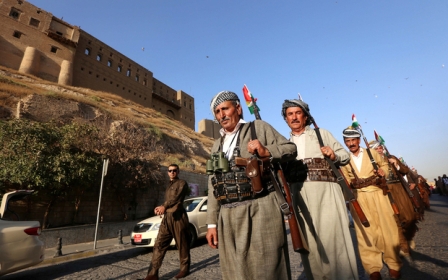Kurdish vote 'destabilising', UN Security Council warns

The UN Security Council on Thursday warned that Iraq's Kurdistan region was potentially destabilising, adding its weight to international opposition to the vote.
In a unanimous statement, the 15-member council said the referendum planned for Monday could hinder efforts to help refugees return home and weaken the military campaign against the Islamic State group.
The move heightened pressure on Iraqi Kurd leaders to call off the vote after Turkey, Iran and Iraq urged them to abandon the plan that is also opposed by the United States.
Council members "expressed concern over the potentially destabilising impact of the Kurdistan regional government's plans to unilaterally hold a referendum next week," said the statement.
"The planned referendum is scheduled to be held while counter-ISIL [Islamic State] operations - in which Kurdish forces have played a critical role.
The council urged "dialogue and compromise" to address differences between the Iraqi government and the regional authorities.
Iraqi Kurds will vote on 25 September in the non-binding referendum on whether to declare independence in a region that has already been autonomous since the aftermath of the 1991 Gulf War.
UN Secretary-General Antonio Guterres on Sunday urged the Iraqi Kurds to scrap the referendum and offered Baghdad and the Kurds UN mediation to help resolve the issue.
UN envoy to Iraq, Jan Kubis, told Iraqi Kurdish leader Massoud Barzani last week that the United Nations was ready to broker negotiations between the Kurds and Baghdad.
In return, Barzani's administration would agree to postpone the referendum at least until the end of negotiations.
Middle East Eye propose une couverture et une analyse indépendantes et incomparables du Moyen-Orient, de l’Afrique du Nord et d’autres régions du monde. Pour en savoir plus sur la reprise de ce contenu et les frais qui s’appliquent, veuillez remplir ce formulaire [en anglais]. Pour en savoir plus sur MEE, cliquez ici [en anglais].




